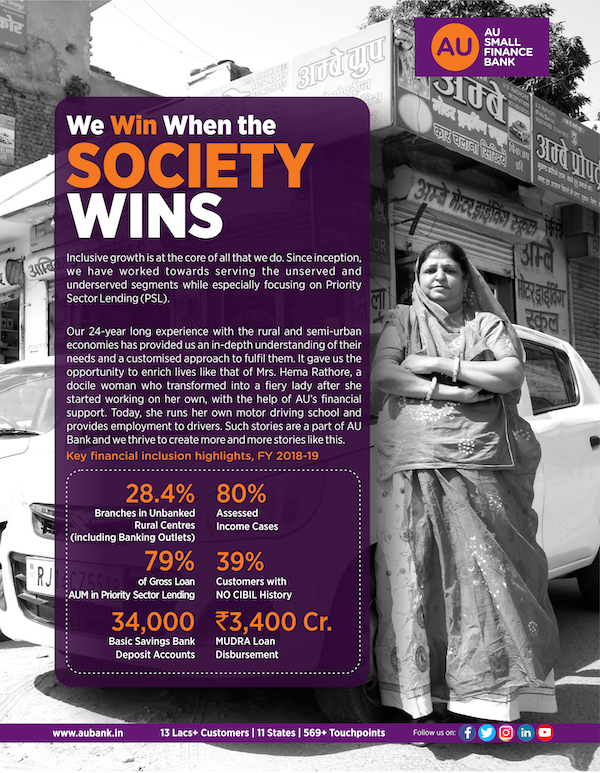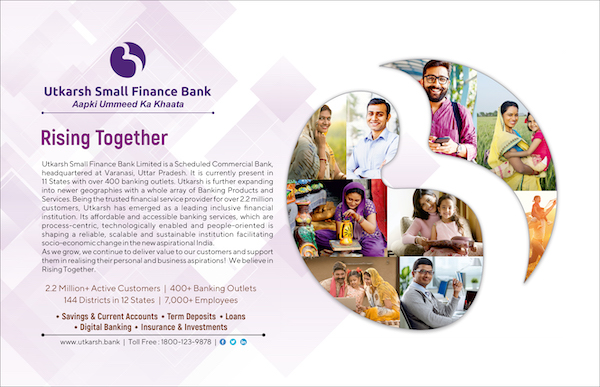Dr Harsh Kumar Bhanwala may be a man of numbers, but he leads with his heart. In his six years with the National Bank for Agriculture and Rural Development (NABARD), he has consistently supported the enhancement of rural farmers’ income through the creation of agriculture and irrigation infrastructure.
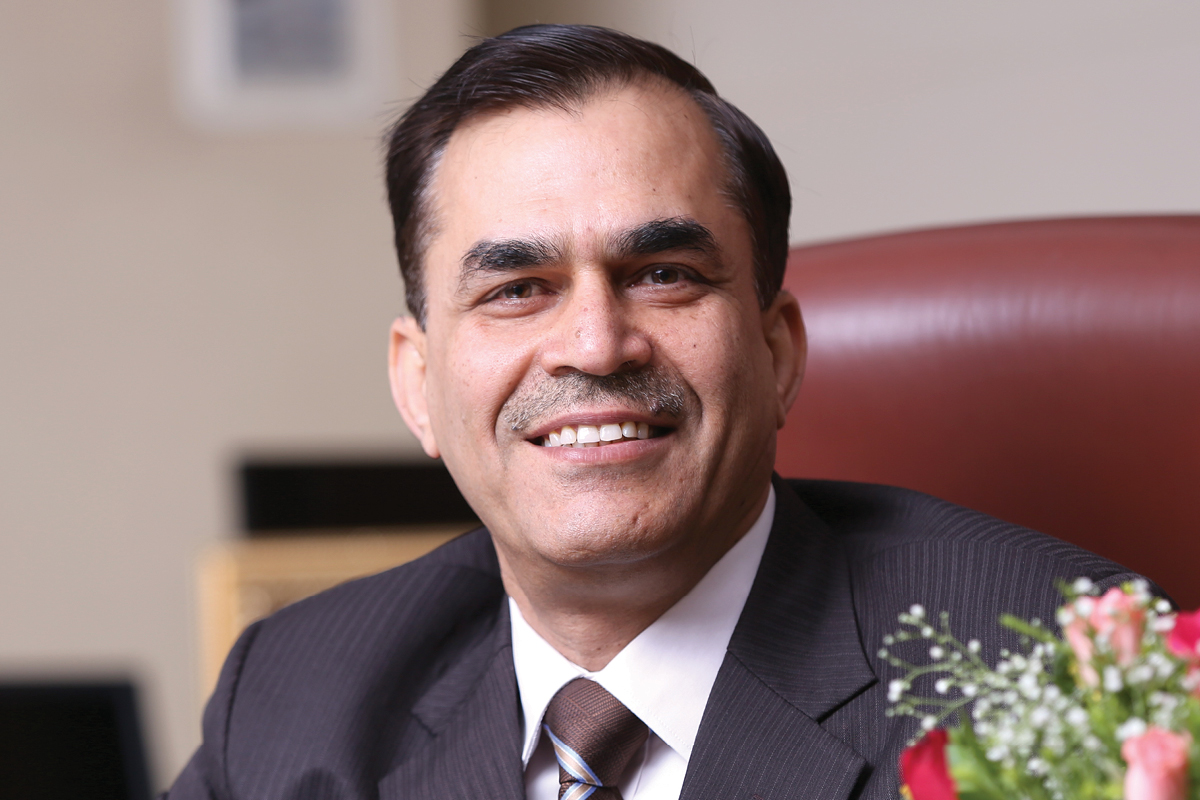
From launching pilot projects that established agriculture business incubation centres meant to identify and support successful start-up businesses to creating a first-of-its-kind, country-wide survey that comprehensively touched on all aspects related to financial inclusion, Dr Harsh Kumar always puts the people first.
“I’m not here to create value for my shareholders,” he says. “I’m here to create value for my country, the people who are engaged and the people who are in rural areas.”
Through NABARD, the largest – and unique – development bank in India, Dr Harsh Kumar is able to do just that. Created in 1982 to boost the country’s rural economy and provide a relentless focus on credit-related issues linked to rural development, this government-owned bank leverages financial and non-financial interventions, innovation and technology to reach its goals.
“NABARD is not a company, it’s a statutory body,” Dr Harsh Kumar explains. “It’s a bank created by legislation of the Parliament. The NABARD Act has mandated us to bring integrated development in rural areas. We are in a unique position – there’s nobody like us.”
And there’s nobody quite like Dr Harsh Kumar either. Armed with a finance-focused, 30-plus-year career, he was undoubtedly the man for the job. Prior to becoming Chairman of NABARD, he worked as the Managing Director for Delhi State Cooperative Bank and Managing Director of India Infrastructure Finance Company, where he pioneered the Credit Enhancement Scheme.
This scheme took a holistic view of customers’ credit needs and ensured sufficient availability of funds at reasonable rates to complete large infrastructure projects. “Each day, I have to ask myself, ‘How are the markets behaving, and when is the right time to borrow?’” he says.
“I learnt all of this at my previous place of work. It’s made me financially savvy. In this present role, to help our people, I have to be. If I’m financially healthy, organisationally speaking, then I’m able to give financial services to those who need it at reasonable prices. I help to fulfil dreams.”
One way he achieves this is through tirelessly espousing the cause of boosting rural residents’ income through the creation of agriculture and irrigation infrastructure. “We have 1.3 billion people residing in the country – one of the largest in the world today,” he says.
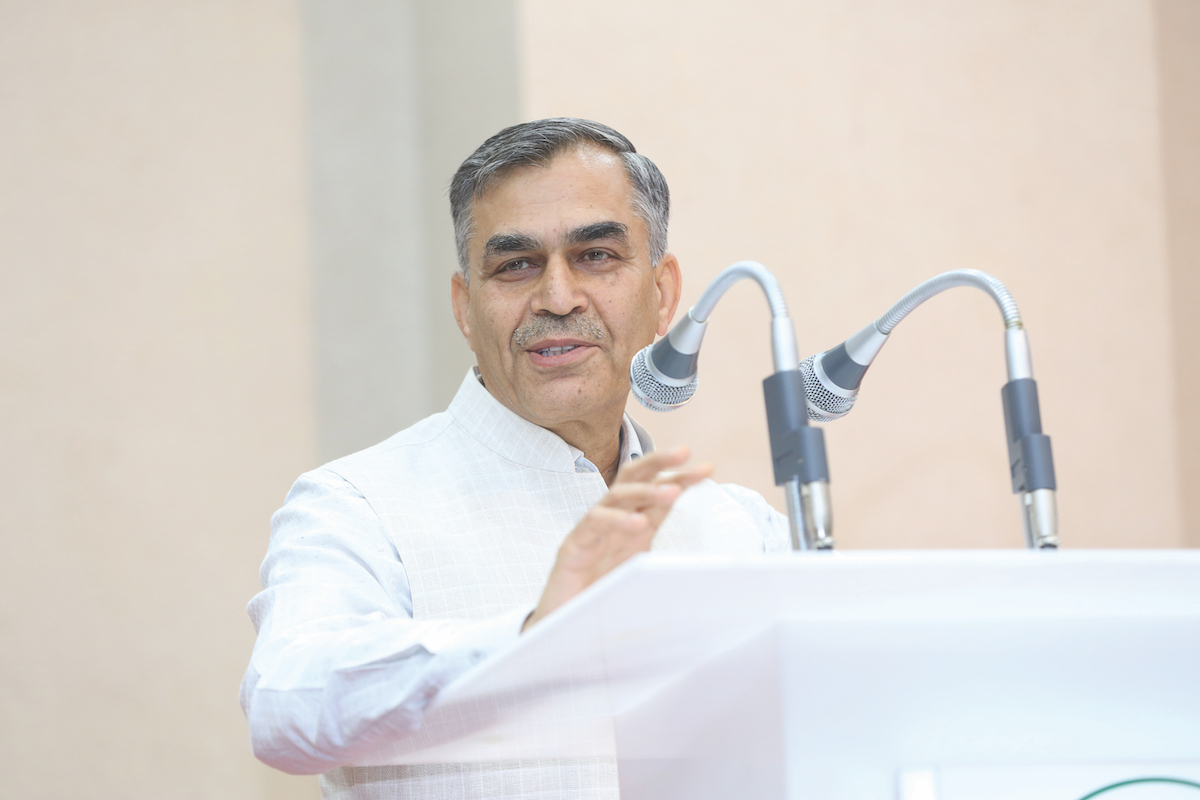
“And about 60% of those people are in rural areas. The rural roads, bridges, electricity, transmission lines, hospitals – all of these improve the quality of life there. So, I lend to state governments at concessional rates. Together, we are able to create infrastructure and a good rural network in these areas.”
Looking to the future, Dr Harsh Kumar hopes to continue making strides in the agriculture market. “This market needs significant reform within our country,” he says, emphasising the need for increased efficiency. “It’s a major objective that we will be working steadfastly in the times to come.
During the next five years, it is our vision that farmers will be able to reach out to the markets in a better fashion. We’ll start to see a renaissance of sorts, bringing higher incomes to the farmers – ultimately, achieving my objective of rural prosperity.”
Right now, though, he is taking great pride in his work with local tribal groups. “I’m currently working closely with a significant tribal population to help them get back on their feet,” he says.
“When we came in to help, their income was only INR20,000 (US$280) per quarter. Since our intervention, it has increased by a leg, a leg and a half. Creating opportunities like this for the backward areas is the hallmark of my functioning in this country. It’s something I’m very proud of.”
“Creating opportunities for the backward areas is the hallmark of my functioning in this country.”
Dr Harsh Kumar is also making efforts to diversify the income sources of small farmers to ensure their livelihood security, saying that agriculture alone cannot generate enough income for their growing needs. “India has a large number of rural youth that are aspiring for a better life,” he explains.
“We are looking to meet these needs with alternative employment creation in the form of small- and medium-sized enterprises, infrastructure and health and educational services. We need to nurture this new wave of ‘agripreneurial’ ventures to help our rural areas prosper.”
With his visionary, future-focus leadership style, it’s no surprise Dr Harsh Kumar is also a staunch supporter of sustainability and innovation. Under his leadership, NABARD has earned accreditation as a National Implementing Entity by the Adaptation Fund Board and Green Climate Fund of the United Nations Framework Convention on Climate Change.
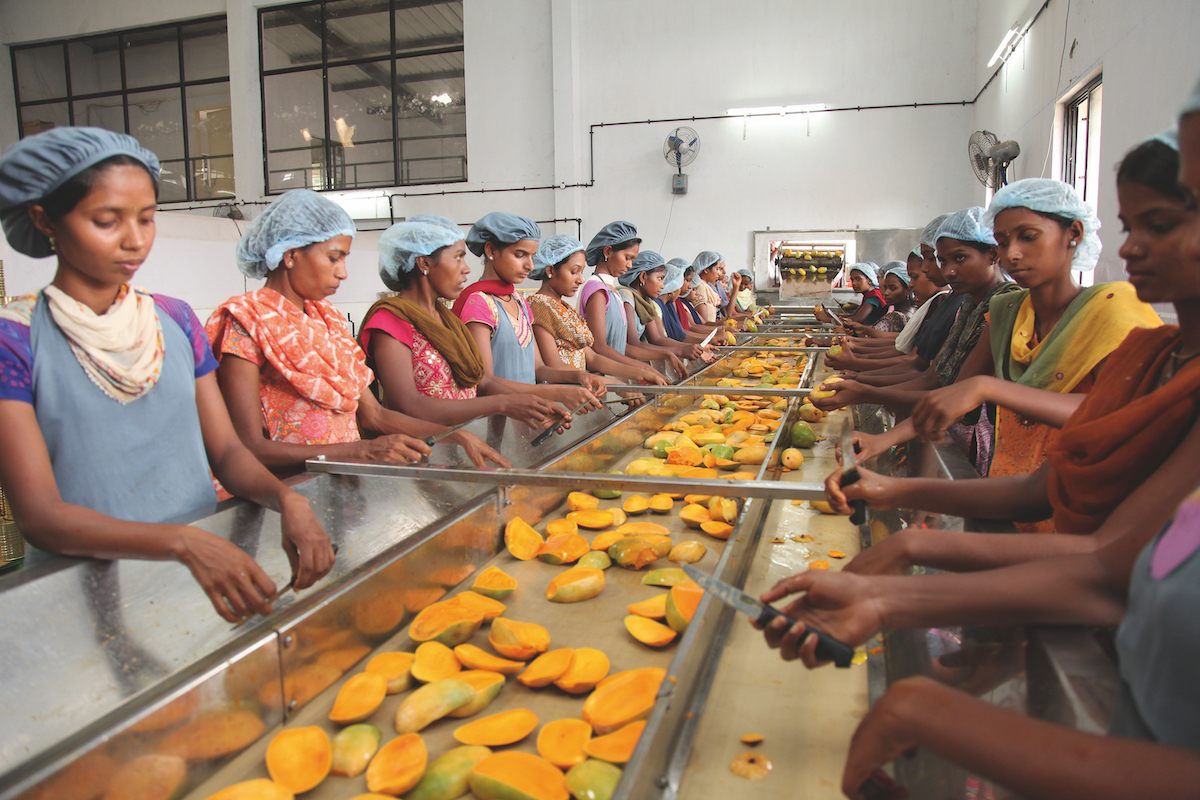
“That accreditation was received on the back end of my transparency policy, gender policy and fair pricing policy,” he says. “When the world was moving towards technology, I backed digital financial inclusion. We have to ensure that all of our rural areas are given access to innovations. That’s why we are running the world’s largest microfinance program – Self Help Groups-Bank Linkage Programme – which is being digitised, for bringing about transparency, enhanced bankers’ comfort in credit appraisal and facilitated provision of hassle-free credit and banking services to millions of low-income households.”
While doing all of this is of great service to India, Dr Harsh Kumar says he could not have done it without the support from his partnerships. “We work with nearly 4,000 non-governmental organisations in this country,” he says.
“We also work actively with the seven ministries of the central government – the Ministry of Water Resources, Ministry of Rural Development, Ministry of Agriculture and Farmers’ Welfare, Ministry of Drinking Water and Sanitation, Ministry of Food and Civil Supplies and the Ministry of Environment and Forest. We actively engage in the holistic movement of the people.”
Dr Harsh Kumar says the breadth of his work is imperative to its effectiveness. “No other institution has this kind of engagement with so many people,” he continues.
“I also work with more than 15 commercial banks in this country, in terms of funding them. In terms of providing financial inclusion grants and other grants, I work with the entire banking industry in India. Partnerships with other national entities, financial institutions and non-governmental organisations are crucial in allowing us to implement innovative ideas through loans, blended finance and other structures in the areas of agriculture, natural resources management, rural livelihood improvement and renewable energy, among other things. In these relationships, it’s vital to have honesty, transparency and the ability to work respectfully and collaboratively.”
He also stresses the importance of teamwork in a successful strategy. “As Chairman, I can’t do everything,” he admits.
“Without delegation, it’s impossible to work. You have to understand your employees, their needs and how you can help them contribute efficiently. So, based on the vision and mission of the organisation, I have to provide this direction to my people. Our philosophy is of motivated manpower – we upgrade their knowledge and invest significantly in their learning to give them opportunities to attend reputed schools and improve their skills.”
“If you don’t add value to society, then you will not be seen as a relevant institution.”
Under his leadership, NABARD’s assets have risen from INR254,574 crore to INR487,500 crore (US$35 billion to US$68 billion). “I’m really happy that NABARD’s business growth has been so good. In the past five years, our financial growth in terms of assets has grown with the compounded rate of more than 15%, and our profitability has also been very consistent. I’m able to get money from the Indian capital markets at one of its lowest, finest rates – some people even use NABARD as a benchmark. Last year, after the Government of India, NABARD was the largest borrower in long-term debt markets of the country.”
However, to be successful as a leader, Dr Harsh Kumar says it takes more than money to add value to society. “While staying financially healthy in an organisation is easily a success,” he says, “if you don’t add value to society, then you will not be seen as a relevant institution.
“A good organisation has motivated manpower to back it up. It has robust defence mechanisms in place and robust technology platforms. For without these key items, the organisation will not be able to move forward.”
Proudly supported by:
